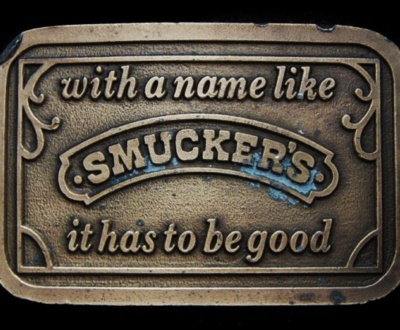When working to expand a brand, a great way to build an audience and engage fans is through the use of contests. This is because no matter what you are offering as a prize, the end result for your company is increased exposure and interaction with fans. This lays the groundwork for passive grassroots visibility through your fans timelines and notices that people will see on their pages or sites.
This is not to say, however, that campaigns are as simple as just starting a contest and reaping the rewards of new members. It takes effort for participants to engage you or your brand online, and not many people want more email from marketing companies. Contests are a way to give them an incentive to take that effort. In return they receive a reward, and you get a few minutes of their time.
Often the effectiveness of a particular contest will be difficult to measure in terms of raw numbers, such as traditional analytics might measure site interactivity. This is because the number of quality leads or prospects you attract with a social media contest campaign will be difficult to determine due to the fact that some participants will undoubtedly be fake, while others only have interested in your prize, and not your company or product.
Additionally, studies have shown that customers are getting smarter about playing the odds of winning a contest. If your budget is ,000 for prizes, it would be better to have 10 winners at ,000 per person than one winner at ,000. Balancing the number of winners with the value of the prize is key to encouraging customers to participate. More chances to win equates to a greater incentive, and it is your highest value customers who will almost always have the least incentive to participate in a contest.
An excellent example of this would be giving away a free iPad as part of a contest. In such a contest, most participants would be engaging with you because of the chance to win a prize, with few high-quality leads or prospects participating. Determining one from the other would be nearly impossible. Unless you were harvesting email addresses and possible sales leads for mass mailing, where the quality of the leads is less important, such a prize would be difficult to justify to the general public.
On the other hand, if you were offering a subscription based service, such as a magazine, a contest where every new subscription received an entry in the drawing for an iPad, it would be much more realistic. People accept that they’re paying a few dollars for a service subscription, and might even gift subscriptions to others as a way to increase their chances of winning. In this case, it is often a good idea to offer extra incentives for those who sell the most subscriptions, much like children’s magazine sales. This makes for an extremely effective campaign, increasing product exposure and generating additional revenue at the same time.
Of course, those are generally the types of contests larger companies use to target their user base with. The average small business will more often provide local or regional incentives, but irrespective of the reward, the most effective campaigns will always offer something material.
This is because an object carries sentiment. For example, if someone wins ,000, they can immediately spend it on a new iPhone, but their association with the contest will be in winning money, not in the phone they will use every day. If, however, the prize was an iPhone, the person winning would be reminded of the company every time they used the phone. This is because of the material association. Material objects last, whereas cash prizes are disposable, and therefore quickly forgotten along with the marketing.
There is also the consideration of taxes. Material prizes have a cash value, and it would seem only natural for a company to deduct the expenses of such a contest. Unfortunately, as American Airlines discovered, the company would be very much mistaken in ‘charging’ a customer for a prize. Customers view winning a contest as receiving a gift. Burdening them with taxes to save a few dollars can cause lasting harm to the image of your company and erode or destroy trust in your brand.
In a classic example of what not to do, the American Airlines contest penalized their winner with almost ,000 in tax liability. After unsuccessfully attempting to resolve the issue with American Airlines, he began a negative publicity campaign that continues to this day. It can be seen here , and was also nationally syndicated by the WSJ. Almost a decade later it still generates negative publicity for the airline, and is used in marketing training as an example of what not to do. Take note of this, make sure accountants understand the purpose of the campaign, and adjust accordingly to be successful.
Last, but of no less importance, are the regulations each social media company has that are specific to running contests. They are a little different for each company, but at a minimum the following six items generally apply:
- All laws for the area must be obeyed (Federal, Local, etc.). Violation of laws will result in immediate closure of the contest.
- Any use of the social media company’s logo or likeness is governed by specific rules, which can be unique to each, but in general require that users do not imply that they are in partner with the social media company, and do not constitute any form of misleading brand (changing the Facebook logo colors, for example).
- Contest participants should be discouraged from the use of multiple accounts to enter more than once, and in the event of suspicious activity, should be reported to the social media site.
- Any prize awards must not be in violation of any laws, or otherwise unacceptable to the social media site (in other words, alcohol, firearms, hate speech, pirated software or video, and tobacco would be unacceptable prizes).
- Contests must not be deceptive in nature (for example, sign up for a free site, to later be billed, or visit a site and click on an ad to generate revenue).
- Companies running or managing contests must not pretend to be members of the social media site staff at any time.
Information specific to each site can be found at the links below:What you need to know about Facebook…
- What you need to know about Facebook…
- What you need to know about Pinterest…
- What you need to know about Twitter…
By following a few guidelines designed to keep the experience legitimate and rewarding for fans, you will contribute to a growing segment of the business market that has discovered the value of targeted contests for social media interaction with fans. Done properly this will increase product exposure and reach. Keep in mind that the more targeted a particular contest is towards a specific segment of the market, the more effective your fan engagement will be. Good luck with your next contest, and remember to observe the rules of whichever site your campaign is running
· What you need to know about Facebook…
This is author biographical info, that can be used to tell more about you, your iterests, background and experience. You can change it on Admin > Users > Your Profile > Biographical Info page."
About us and this blog
We are a digital marketing company with a focus on helping our customers achieve great results across several key areas.
Request a free quote
We offer professional SEO services that help websites increase their organic search score drastically in order to compete for the highest rankings even when it comes to highly competitive keywords.
Subscribe to our newsletter!
More from our blog
See all postsRecent Posts
- 4 Reasons You Should Be A/B Testing Your Email Marketing Campaigns May 15, 2018
- The Secret Strategy for Using Surveys to Boost Conversions (It’s Not What You Think) February 2, 2017
- Advanced Brand Positioning Strategies December 31, 2016




